
Camille Le Coz
Associate Director, MPI Europe, and Senior Policy Analyst, MPI
Camille Le Coz is an Associate Director with MPI Europe and Senior Policy Analyst with MPI, primarily working on migration and development and EU migration policies. Her research areas include refugee protection and development, climate migration, diasporas and remittances, labor migration, and return and reintegration. She has advised development agencies and multilateral development banks on how to better address associated challenges.
|
Media Requests |
Ms. Le Coz represents MPI as Co-Lead of the UN Migration Working Group on Return, Readmission, and Reintegration. She also hosts a community of practice on voluntary return and sustainable reintegration with policymakers and practitioners from countries of origin and destination. She also is part of the Expert Group on Displacement at the Asian Development Bank.
Ms. Le Coz came to MPI Europe from Altai Consulting, a research and consulting organization, where she was a Project Director responsible for the migration practice. She was based in Kenya and Afghanistan, where she managed various studies for institutions such as the European Union, the UN High Commissioner for Refugees, and the International Organization for Migration. She has conducted research in various countries in Africa and Asia.
She holds a dual master’s degree in international relations from Sciences Po Paris and the London School of Economics. She also holds a bachelor’s degree from Sciences Po Paris.
Bio Page Tabs
African migrants turn to the strength of kinship-based support systems in pursuit of stability as they settle in a European landscape that is sometimes made precarious by their legal status and shifting policies. This episode discusses use of the kinship networks, including to exchange or broker identity documents between migrants along the migration journey and at destination.
MPI Europe Associate Director Camille Le Coz discusses migration dynamics in West Africa and and how African leaders are responding to these trends with Leander Kandilige, a senior lecturer at the Centre for Migration Studies at the University of Ghana.
MPI Europe Associate Director Camille Le Coz discusses rising displacement in the Sahel, which is experiencing multiple crises, with development economist Alexandra Tapsoba.
This webinar explores the goals and target audiences for public-facing information campaigns on voluntary return and reintegration, how to evaluate dissemination gaps, and the risks associated with inadvertently issuing messages that are not trusted or are misunderstood.
Marking the one-year withdrawal of U.S. troops from Afghanistan and the fall of Kabul to the Taliban, this webinar reflects on the humanitarian and development challenges in Afghanistan and for neighbors, the difficult choices facing aid donors, and what needs to be done to ensure at-risk Afghans can reach safety.











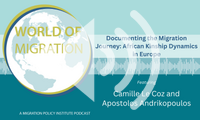
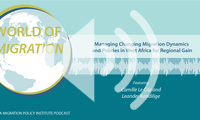
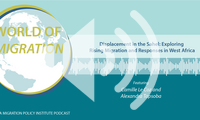
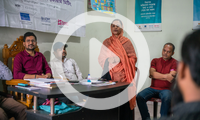
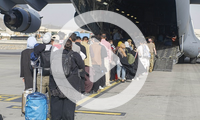
One Phase Closes for the New Pact on Migration and Asylum. Now Another Begins
The International Community Must Develop a Well-Coordinated Protection Strategy for Afghan Refugees
Lessons from Europe: The U.S. Opportunity to Rethink the Links Between Development Assistance and Migration
European Strategy on Voluntary Return and Reintegration Advances Action within Bloc, Leaves More to Discuss with Countries of Migrant Origin
A Race Against the Clock: Meeting Seasonal Labor Needs in the Age of COVID-19